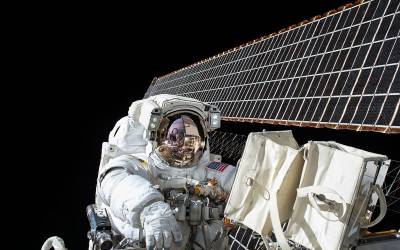
The Off Earth Atlas
COSS is delighted to be awarded the UCL-PSL Strategic Partnership fund for the production of our ‘Off Earth Atlas’. This interdisciplinary project, led by anthropologists, will consider life in outer space in many different and exciting ways -from what biological definitions of life are to the new social relations that come about in outer space. Through workshops, a multimedia website and a high-grade publication, ‘The Off Earth Atlas’, will highlight the great work at UCL, PSL and strengthen our networks together and internationally in growing field of research on the social studies of outer space.
ETHNO-ISS
An Ethnography of an Extra-terrestrial Society: the International Space Station
This project has received funding from the European Research Council (ERC) under the European Union’s Horizon 2020 research and innovation programme (grant agreement No. 833135).
The International Space Station (ISS) is arguably the oldest extra-terrestrial society in low earth orbit. To date this radical new form of human habitation and society has not been the object of systematic and comparative ethnographic inquiry. This project aims to correct this and proposes a comparative and multi-sited ethnography of the ISS among the contributors to its modular architecture: The Russian Federation, The United States of America, The European Union and Japan. The ISS offers invaluable insights into fundamental questions at the heart of the social sciences. The most obvious is the effect of micro gravity on our understandings of material culture and sociality. To date material culture has only been theorised in terms of Earth’s gravity.
Al Biruni, 'Chronology of the Ancient Nations'
Principal investigator of a Leverhulme-funded project, employing one full-time researcher, Mr Francois de Blois. The purpose of the project is to produce critical editions, with translation and commentary, of several Arabic and Syriac texts on the Jewish calendar from the 9th – 11th centuries, which blend of astronomy and mathematics with the study of chronology, social practices, and religious traditions.
 Close
Close

